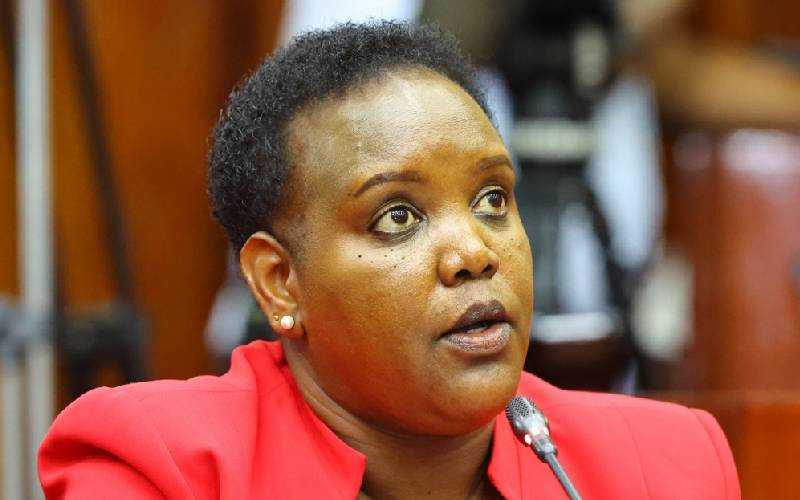As the world marks international family day celebrated on May 15th every year, many Kenyans have also gone ahead to express love to their families in different ways in order to observe this special day that has been neglected for years.
This day provides a unique platform to raise awareness of issues affecting families and to learn more about the social, economic, and demographic processes that impact them.
.jpeg)
Florence Bore, the Cabinet Secretary of the Ministry of Labour and Social Protection, took charge of the festivities at the Kenya Institute of Curriculum Development, emphasizing the need for a collaborative and cross-sectoral approach in fostering positive and nurturing parenting.
Did you read this?
"Families play a critical role in society and the protection of the family unit is important for sustainable living. I call for a multi-sectoral approach to ensuring Positive parenting to ensure caregivers have a nurturing relationship with their children," she said
During the event, the Cabinet Secretary, Florence Bore, not only led the celebrations but also unveiled essential initiatives in the field of parenting. Among these were the National Positive Parenting Guidelines, the Manual Implementation Guide, and a comprehensive five-year roadmap. These milestones mark significant progress towards the promotion and safeguarding of families.
CS Bore underscored the commitment of her ministry, particularly the Directorate of Children Services, to establish nurturing, secure, and flourishing households that enable children to fully develop their potential. Recognizing that physical abuse by parents or caregivers is the most prevalent form of violence against children, she acknowledged the additional challenges families face due to factors such as drought, poverty, and the impacts of COVID.
In attendance was Dr. Abey Sheikh, the Director General of the National Council for Population and Development (NCPD). Dr. Sheikh highlighted encouraging statistics regarding life expectancy. He noted that between 2009 and 2019, the life expectancy for men in Kenya had increased from 58 to 60 years, while for women, it had risen from 61 to 66 years.
"Our population has significantly increased in the last few decades from 10.9 million in 1969 to 47.6 million in 2019 and is projected to reach 57.8 million by 2030." he added
Research findings indicate that rural families predominantly rely on nyumba Kumi committees as a means of dispute resolution, in contrast to their urban counterparts.









